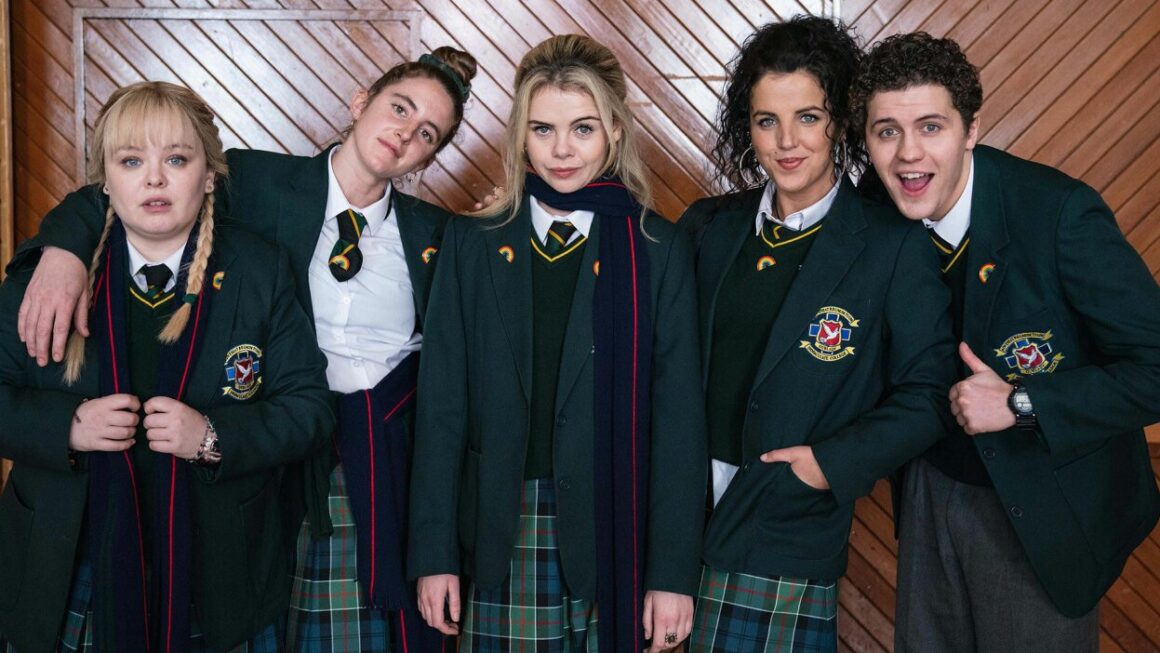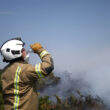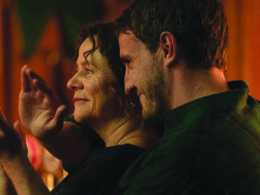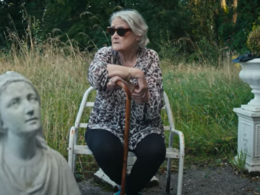Derry Girls
Created by Lisa McGee
Channel 4, 2022
Reviewed by Rebecca McMonagle
Channel 4’s Derry Girls returned for its third and final season of post-ceasefire mischief and mayhem. For her final season Lisa McGee pulled no punches, cramming it jammed packed with what it means to be from Derry – from train trips to Barry’s, to Halloween at St. Columbs Hall, to a night spent in the place us Derry ones all secretly wish we were from (Donegal).
Aside from all the nods to Stoke City and its Teenage Kicks national anthem, Derry Girls, though portraying an arguably rose-tinted look at working-class life in Derry, delivers a refreshingly candid look at young womanhood, where the girls are as funny as they are serious, and as daft as they are smart.
The almost exclusively female protagonists have their own hopes and dreams – there’s Erin, pen in hand ready at any moment to become the world’s newest literary genius; Orla, dancing her way to Strictly (give her five years); Claire, shiteing herself through every exam she aces; and Michelle doing “whatever the f**k she wants to!”
Lisa McGee spares us tropes like off-the-handle teen girl hormones and daddy-daughter resentment in favour of touching moments like that between Claire and her da as he moves mountains (and literally a Halloween parade) to get the gang to FatBoy Slim on time.
Not only does Lisa McGee give us this realistic look into young womanhood, but she also gives us mothers with their own personality and agency. Women who fight back against the societal norms of servitude to the family, such as Mary when she decides to read Wuthering Heights instead of jumping to the whims of her family. These characters feel so real in many ways, and I love seeing these kinds of girls – the sisters, cousins, best friends and mammy – that I grew up with alive on the screen before me.
Cutting across the comedy of the Derry girls and the wee English fella is the very serious reality of Northern Ireland in the 1990s. TV clips of the ceasefire, bombings, and contentious peace agreements are the background noise of the characters lives. By the mid-90s, over 3,000 had been killed in the ‘Troubles’. And though checkpoints and bomb scares became normalised to the point of nuisance, the people of Northern Ireland desperately wanted an end to the violence.
Derry Girl’s penultimate 45-minute long episode sees the characters grapple with the Agreement, now known as the Good Friday Agreement or Belfast Agreement.
While Granda Joe struggles to read past the introduction of the overly convoluted pamphlet designed to help explain the Agreement, other characters try to come to terms with what the implementation of the Agreement would mean for people of Northern Ireland. Ma Mary and Aunt Sarah consider the handiness of two passports and “becoming bi”, while Erin and Michelle wrestle with the early release of political prisoners like Michelle’s brother. In the end the Yes vote in favour of the Agreement is portrayed as the only way forward, the end to the violence, with the episode closing (if we choose to forget the Chelsea Clinton scene) with toddler Anna Quinn jumping her way out of the polling station door towards a future of peace.
In reality the impetus for peace did not come from politicians but from the action of working-class people against paramilitary violence and state repression. The 1990s saw working-class Protestants and Catholics unite in protest against sectarian violence – trade unionists led strikes and demonstrations in the wake of the IRA’s sectarian massacre in Teebane, and tens of thousands protested in response to Loyalist atrocities like the Greysteel massacre. Later, when the paramilitaries broke their ceasefire, thousands marched to say “no going back!”
Twenty years on and the idea that the Agreement could be a genuine solution to sectarian violence continues to unravel at its seams. The Anna Quinns of Northern Ireland, the ceasefire babies too young to remember checkpoints, are now in their twenties. Though we have experienced a relatively peaceful two decades, we have also grown up alongside a Stormont Assembly which has been riddled with crisis and a society in which childrens’ education is segregated, and likewise most working-class communities – divided by twice as many peace walls as when Derry Girls was set.
The current crisis is a warning that society can be thrown further back unless an alternative, a united working-class and socilaist alternative, is built. We need a new movement based around the ordinary working-class people and communities, such as those depicted (in comedic fashion) in Derry Girls, fighting for their common interests, to ensure no return to the violence of the Troubles. Only with such a movement can we break with a system that thrives on sectarian division and create a society where in the words of Granda Joe, “What all this is is a ghost story you’ll tell your waines someday, a ghost story they’ll hardly believe.”












